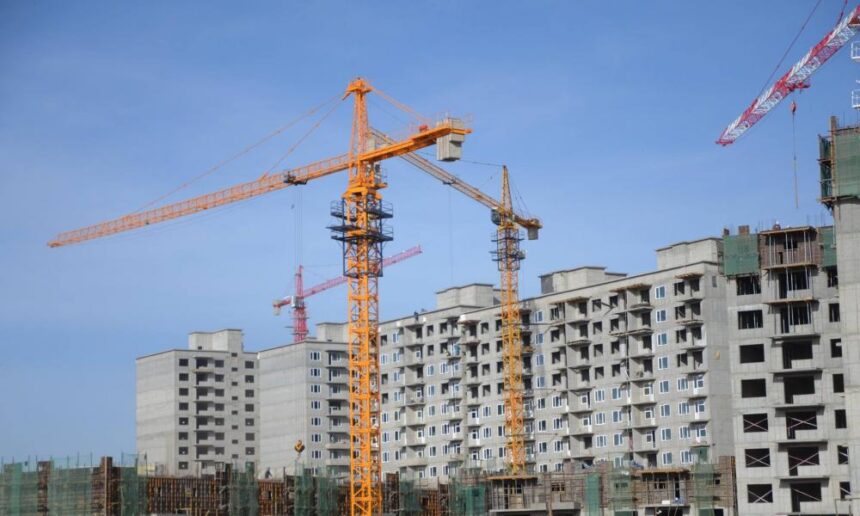“Apartment prices will decline, especially when program for 100 thousand apartments starts to take effect housing prices will decline by double” confirmed the president of the Construction association M.Batbaatar. Unfortunately the history of economic development in other countries shows that in fast growing developing economies that are largely based on mining, housing prices never decline. Instead of price decline following an economic crisis, housing prices competed with economic development and increased even more following an upsurge in petroleum prices on the global market. Qatar and Kazakhstan whose economies are similar to Mongolia are clear examples of this situation.
Today, Mongolia is repeating this history, as more apartments are put on market, housing price are rising. During this year’s second quarter alone, average apartment price increased by 30% and 1m square costs 1.2 million Turgrogs. Prices for good quality apartments in strategic location are twice as high.
The increase in apartment prices is largely the fault of the government. Despite wishing for the best, the outcome of its conduct leads to this conclusion. If the government was dedicated only to its primary duties, invested in developing the infrastructure and let the private sector complete the rest by market economy principles to provide its citizens with shelter that meet basic sanitary requirements, drinking and sanitation water and bathrooms with flushing toilets, apartment prices would not have increased as much as they have.
The government itself cannot see that it is only “bear service” to grant reduced loans to thousands of public employees without building power plants, hot water and sewage pipelines. While unable to implement the proposed agendas with big numbers, the government’s promise to provide housing with discounted prices are causing apartment prices to escalate. Once providing the opportunity for so many people to obtain housing simultaneously stimulates demand for housing and heats apartment prices.
For example, the government announced three years ago an offer of housing to 4000 public employees with special low-price conditions. As of today, the government has given out a total of 88.7 billion Tugrogs in loan to 2700 families out of the 4000 because the created demands and expectations caused prices of apartments to increase before even the start of construction. The 32.8 million Tugrogs designated to one family on average cannot reach today’s price level for a single room apartment. So the government decided to distribute a loan to government employees with 8% interest per year for 20 years and to pay the difference from tax money. Now citizens are looking to obtain the missing capital from actual market price i.e. with 12% interest per year.
The government, In order to keep its promise, even though it has not completed finalize its first agenda, is promising to make apartments for another 100 thousand low-income families financed through the “Human development fund”. With the spread of this news, as everyone started a hunt for an inexpensive single-room apartment, demand for housing has further increased along with land prices.
In order to build the 7th district in Ulaanbaatar to the west of the street of “Zuun ail” where construction materials are sold, 238 families must move to free the space. The fact that only 36 of whom have done so explains why prices offered for resettlement are so low and had caused the project to standstill. The city Khural of citizens representatives made resolution that established the land price to be bought at 100,000 Tugrogs per 1m2. Construction for housing 2592 families on this area currently occupied by 238 will begin this autumn. Another winter is coming since relevant government organizations have announced that the 47 million of the 100 million dollar Chinese loan would go to development of of the district and the rest for construction.
Those in power refuse to recognize that the only solution to settling the housing issue is through involving citizens living in Ulaanbaatar’s city’s ger districts in the profit sharing from the construction projects on their land. As a result of the government’s enforcing approach to free the land space and give the project to their related construction companies, as they almost always do, the ger districts are spreading and city air pollution increases to catastrophic level. The coming winter will prove this again. As the government keeps discussing grandiose projects we will again face another spring, and will forget about the air pollution when summer comes and will be busy with Naadam and will meet once more another autumn.
The issue would be solved by way of the city government investing into infrastructure to deliver the conditions for the opportunity of ger district citizens to cooperate in building houses and in sharing profit from the project on their lands. City could finance infrastructure development and certain amounts of housing costs through issuing municipal bonds. Cost and expenses would be realistic and not blown because their representatives would closely observe construction process and expenditure.
Accomplishing all this was explained in detail in the program I wrote earlier that was called “Six steps to exchange land for an apartment (http://jargalsaikhan.niitlelch.mn/content/1369.shtml). In order to achieve this goal, it is sufficient for the government and municipal authorities to put aside personal gains and perform the duties for which the people elected them for.
The government’s ambitious plans to provide citizens with apartments are causing apartment prices to heighten more than usual. Due to the rise in apartment prices, the number of families in gers is increasing. We want the government to build power stations faster and stop business on land sales. Individual citizens with the help of market mechanism can handle the rest.
Unoodor
2011.08.24
Translated by J.Ariunaa







